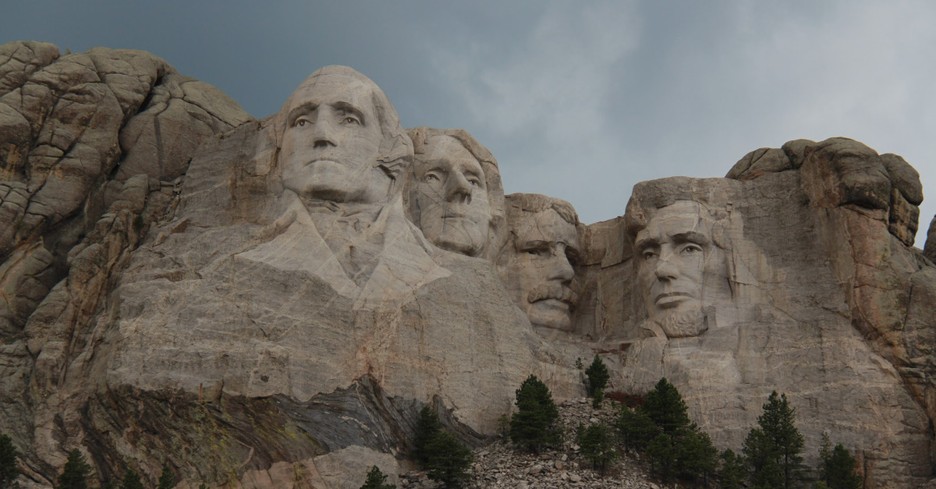
"These are the times that try men's souls … Tyranny, like hell, is not easily conquered; yet we have this consolation with us, that the harder the conflict, the more glorious the triumph." - Thomas Paine, The American Crisis, 1776
General George Washington was so inspired by this essay that during the Revolutionary War, he ordered it read out loud to his troops.
Paine continued: "What we obtain too cheaply, we esteem too lightly... Heaven knows how to put a price upon its goods; and it would be strange indeed if so celestial an article as FREEDOM should not be highly rated."
That word freedom has renewed meaning after the September 11, 2001, terrorist attacks in New York and Washington D.C., where commercial jetliners were hijacked and crashed into the twin towers of the 110-story World Trade Center and the U.S. Pentagon, killing untold thousands. And the possibility of more attacks of chemical, biological or nuclear weapons certainly exists.
Paine continued:
"The cause of America is in a great measure the cause of all mankind. Where, say some, is the king of America? I'll tell you, friend, He reigns above."
Tuesday, September, 11, 2001, President Bush echoed Paine’s sentiments from Barksdale Air Force Base in Louisiana: "Freedom itself was attacked this morning by a faceless coward, and freedom will be defended."
Bush continued that evening:
"Today, our fellow citizens, our way of life, our very freedom came under attack in a series of deliberate and deadly terrorist acts ... Thousands of lives were suddenly ended by evil, despicable acts of terror. The pictures of airplanes flying into buildings, fires burning, huge structures collapsing have filled us with disbelief, terrible sadness and a quiet, unyielding anger ...America was targeted for attack because we're the brightest beacon for freedom and opportunity in the world."
Commander-in-Chief George Washington addressed his troops July 2, 1776:
"The time is now near at hand which must probably determine whether Americans are to be freemen or slaves; whether they are to have any property they can call their own; whether their houses and farms are to be pillaged and destroyed, and themselves consigned to a state of wretchedness from which no human efforts will deliver them.
"The fate of unborn millions will now depend, under God, on the courage and conduct of this army. Our cruel and unrelenting enemy leaves us no choice but a brave resistance, or the most abject submission. We have, therefore, to resolve to conquer or die."
Commander-in-Chief George W. Bush, two hundred and twenty-six years later, repeated that commitment:
"The deliberate and deadly attacks, which were carried out yesterday against our country, were more than acts of terror. They were acts of war ... Freedom and democracy are under attack ..."
"This enemy attacked not just our people but all freedom-loving people everywhere in the world ... This battle will take time and resolve, but make no mistake about it, we will win."
The White House Burned
Having an enemy strike at the very heart of our government happened before. During the War of 1812, the British invaded the Capitol in Washington, D.C., and on August 24, 1814, burned the White House and the Capitol.
President James Madison, September 1, 1814, issued the Proclamation:
"Whereas the enemy by a sudden incursion have succeeded in invading the capitol of the nation ... during their possession of which, though for a single day only, they wantonly destroyed the public edifices ...
"On an occasion which appeals so forcibly to the proud feelings and patriotic devotion of the American people none will forget what they owe to themselves, what they owe to their country and the high destinies which await it, what to the glory acquired by their fathers in establishing the independence which is now to be maintained by their sons with the augmented strength and resources with which time and Heaven had blessed them."
Days of Fasting
During that war, President Madison issued two Days of Prayer and on November 16, 1814, proclaimed a National Day of Public Humiliation and Fasting:
"That in the present time of public calamity and war a day may be recommended to be observed by the people of the United States as a day of public humiliation and fasting and of prayer to Almighty God for the safety and welfare of these States, His blessing on their arms, and a speedy restoration of peace ... of confessing their sins and transgressions, and of strengthening their vows of repentance ... that He would be graciously pleased to pardon all their offenses against Him."
50,000 Die 70 Miles from Washington, D.C.
The price of freedom was paid again during the Civil War. After the Union lost the First and Second Battles of Bull Run, panic struck as General Lee marched his 76,000 Confederate troops toward Washington, D.C. On July 1, 1863, on the fields of Gettysburg, a battle began which lasted three days and resulted in over 50,000 deaths.
President Abraham Lincoln stated in his Gettysburg Address, November 19, 1863:
"Fourscore and seven years ago our fathers brought forth upon this continent a new nation, conceived in liberty, and dedicated to the proposition that all men are created equal. Now we are engaged in a great civil war, testing whether that nation, or any nation so conceived and so dedicated, can long endure ... It is rather for us to be here dedicated to the great task remaining before us - that from these honored dead we take increased devotion... that we here highly resolve that these dead shall not have died in vain - that this nation, under God, shall have a new birth of freedom - and that government of the people, by the people, for the people, shall not perish from the earth."
Photo Credit: Unsplash.com


